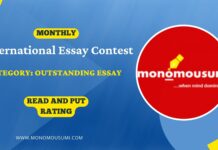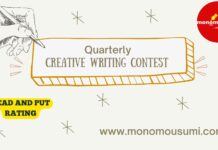Within the amazing embroidered artwork of human progress, the act of writing has always been a powerful instrument of change. From old civilizations etching symbols onto stone tablets to the digital age where keystrokes shape ideas, writing has served as a conduit for capturing the display and envisioning the future. In this essay, we delve into the significance of writing as a means of creating, predicting, and shaping the future.
In the realm of higher education, the advantageous relationship between literary studies and creative composing has developed as a foundation for cultivating significant intellectual and imaginative development. The joining of these disciplines fosters an environment where understudies not only analyze the subtleties of composed works but too effectively lock in within the preparation of creative expression. This exposition investigates the complicated interplay between literary thinks about and creative composing inside the setting of higher instruction, highlighting the benefits, challenges, and all encompassing development they offer to students.
Literary studies and creative writing, settled within the realm of higher education, hold a significant impact on shaping not only the end of the writing but also the minds of trying scholars and scholars. This essay delves into the captivating journey of literary studies and creative writing in higher education, investigating their significance, impact, and the entryways they open to literary exploration and development.
Investigating the Wealth of Literary Heritage, Literary studies in higher education serve as a gateway to the wealthy tapestry of human expression. By submerging students in classical and modern works, these studies develop an appreciation for different cultures, historical settings, and the ageless topics that rise above eras. Analyzing literature cultivates basic thinking, extends expository abilities, and supports an understanding of the human experience.
Inside the realm of literary studies, students are exposed to an endless array of literary masterpieces that have shaped human thought and culture. This introduction hones critical thinking skills, enabling students to discern subtext, symbolism, and the societal contexts in which these works were birthed. In addition, literary studies develop empathy and a broader understanding of different perspectives, advancing cultural awareness and tolerance.
On the creative writing front, understudies set out on an expedition of self-discovery and self-expression. They learn to saddle their imaginative energies, testing with dialect, fashion, and voice. Workshops and peer input refine their composing aptitudes, cultivating an environment of collaboration and development. This process not only improves composed communication but also nurtures the ability to think imaginatively, which has applications past writing and spills over into problem-solving and development.
Making Universes through Creative Creative Writing, Creative writing courses light the imagination, enabling students to become architects of their literary universes. Poetry, fiction, and non-fiction writing workshops offer a space to try with dialect, story structures, and sorts. Creative writing supports self-expression, homes storytelling abilities, and empowers students to convey their thoughts and feelings in original and compelling ways.
As understudies analyze literary theory, they put bits of knowledge into the complex mechanics of narrating, characterization, and imagery, which they can then apply in their claim creative endeavors. This cooperative energy develops an all encompassing understanding of the art of writing.
Cultivating Basic Engagement and Interpretation, Literary studies invite students to engage with texts critically, exploring different layers of meaning and elucidation. Through dialogs, expositions, and workshops, understudies learn to deconstruct accounts, address presumptions, and lock in important exchanges in culture, society, and personality.
Pushing Boundaries and Innovating Narratives, Creative writing in higher education engages students to push the boundaries of traditional storytelling. By experimenting with fashion, structure, and subjects, trying scholars challenge standards and pioneer unused modes of expression. This development contributes to the advancement of writing and grows the skylines of imaginative imagination.
Supporting Lifelong Learners and Creative Explorers, Literary studies and creative writing foster a deep rooted passion for learning and creative investigation. Graduates of these programs carry the ability to lock in basically with writings, communicate successfully, and contribute inventively to different areas, from publishing and journalism to the scholarly community and the expressions.
Composing the future, Literary Studies and Creative Writing in Higher Education” underscores the urgent role of these disciplines in molding the literary landscape and the minds of future writers and researchers. Through a symbiotic relationship between theory and practice, students embark on a transformative journey that ranges centuries, cultures, and genres.
Integrating literary studies and creative writing into higher instruction educational modules has various benefits. Firstly, it cultivates basic thinking skills by encouraging students to analyze and translate writings, cultivating intellectual development. Secondly, it advances effective communication, as students learn to articulate their thoughts coherently in both analytical essays and creative pieces. Besides, these disciplines contribute to individual development, as students explore their identities, emotions, and experiences through writing. Finally, they sustain an appreciation for social differences, promoting cross-cultural understanding and sympathy.
The collaboration between literary studies and creative writing extends past the realm of acadthe scholarly community Students prepared with the expository skills of literary studies and the creative ability of imaginative writing are primed for multifaceted success. They are proficient at articulating ideas, whether in scholarly essays or imaginative accounts, and have the cognitive flexibility to adapt to changing contexts. Moreover, this holistic improvement amplifies individual development, as understudies reflectively lock in with their claim personalities and experiences.
Incorporating literary studies and creative writing into higher education educational modules improves students’ intellectual, creative, and personal development. The synergy between these disciplines encourages all encompassing learning, as understudies create analytical skills, creativity, effective communication, and social awareness. By engaging with literature and sharpening their creative composing abilities, students are better prepared to explore the complexities of an interconnected and different world. As the academic scene continues to advance, the value of literary studies and creative writing remains evident in shaping well-rounded and thoughtful people.
As they dissect and create narratives, they pick up bits of knowledge into the human condition and contribute to the ever-evolving account of human encounter. The combination of literary studies and creative writing in higher instruction isn’t as it were a celebration of language and creative energy but too a confirmation to the enduring power of storytelling to shape the world however to come.
By: Nimas Ayu Nawal Maulida
Write and Win: Participate in Creative writing Contest & International Essay Contest and win fabulous prizes.














